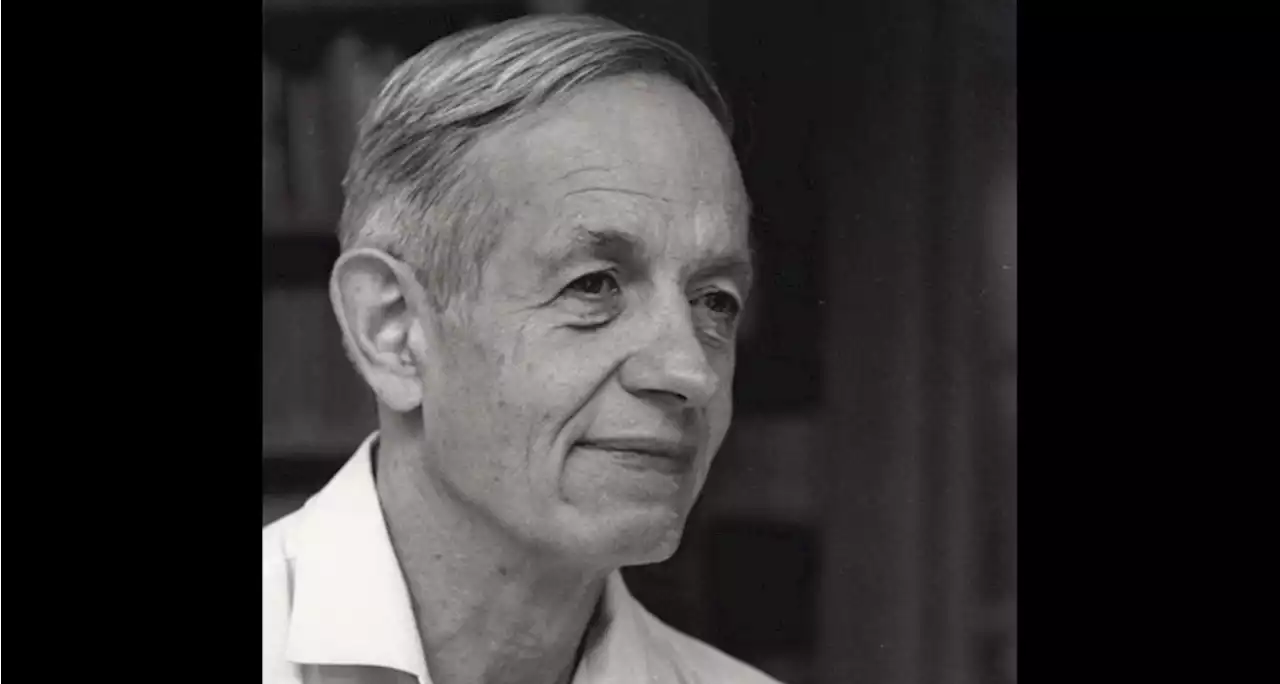John Nash, immortalized in the book and movie 'A Beautiful Mind,' died on this day in 2015, ending a dramatic story of genius.
, made for drama suitable for a movie. Russell Crowe played Nash in the 2001 film, which garbled the math but made the point that despite his affliction, Nash accomplished works of genius — particularly in the theory of games.
At Princeton, Nash revolutionized economic theory, showing how the freshly developed game theory of the great John von Neumann and Oskar Morgenstern could be made more relevant to real life. In their book,, von Neumann and Morgenstern had attempted to derive a mathematics of strategy. They showed how participants in an economy could choose the most profitable behaviors.
Out of this work came the concept of the “Nash equilibrium,” the set of strategies that guaranteed the best possible payoff for all participants. Nash’s genius was to prove that at least one such set of strategies was always possible. In other words, as the economist Samuel Bowles once put it, there is always “a situation in which everybody is doing the best they can, given what everybody else is doing.
Nash’s equilibrium became the bedrock upon which game theory’s future was built. “The concept of the Nash equilibrium is probably the single most fundamental concept in game theory,” Bowles said. And the economist Roger Myerson called it “one of the outstanding intellectual advances of the 20th century … comparable to that of the discovery of the DNA double helix.”
Malaysia Latest News, Malaysia Headlines
Similar News:You can also read news stories similar to this one that we have collected from other news sources.
 Did 'John-John' From 'Sesame Street' End Up On a Sex Offender List?A 2-year-old who appeared on the children's show in 1971 shares a lot of biographical information with a known registered sex offender.
Did 'John-John' From 'Sesame Street' End Up On a Sex Offender List?A 2-year-old who appeared on the children's show in 1971 shares a lot of biographical information with a known registered sex offender.
Read more »
 'It feels amazing!' Private Ax-2 astronauts thrilled by zero gravity and Earth views after SpaceX launch (video)Robert Lea is a science journalist in the U.K. whose articles have been published in Physics World, New Scientist, Astronomy Magazine, All About Space, Newsweek and ZME Science. He also writes about science communication for Elsevier and the European Journal of Physics. Rob holds a bachelor of science degree in physics and astronomy from the U.K.’s Open University. Follow him on Twitter sciencef1rst.
'It feels amazing!' Private Ax-2 astronauts thrilled by zero gravity and Earth views after SpaceX launch (video)Robert Lea is a science journalist in the U.K. whose articles have been published in Physics World, New Scientist, Astronomy Magazine, All About Space, Newsweek and ZME Science. He also writes about science communication for Elsevier and the European Journal of Physics. Rob holds a bachelor of science degree in physics and astronomy from the U.K.’s Open University. Follow him on Twitter sciencef1rst.
Read more »
 Citizen Science Observations Are Showing Up In Dozens of Published Research Papers🔬🌍 Unleashing the Power of Citizen Science: How Your Data Shapes Scientific Discoveries! From Alzheimer's breakthroughs to ocean plastic movement, see how volunteers like you are transforming research. Join the movement today!
Citizen Science Observations Are Showing Up In Dozens of Published Research Papers🔬🌍 Unleashing the Power of Citizen Science: How Your Data Shapes Scientific Discoveries! From Alzheimer's breakthroughs to ocean plastic movement, see how volunteers like you are transforming research. Join the movement today!
Read more »
 8 Science-Backed Benefits of Eating GrapesThough a nutrient-dense fruit, grapes also have their shortcomings—but do the benefits of eating grapes outweigh the side effects? Find out.
8 Science-Backed Benefits of Eating GrapesThough a nutrient-dense fruit, grapes also have their shortcomings—but do the benefits of eating grapes outweigh the side effects? Find out.
Read more »
 Thousands protest Mexico’s new science lawResearchers in Mexico are preparing to march against legislation that some say could harm basic science
Thousands protest Mexico’s new science lawResearchers in Mexico are preparing to march against legislation that some say could harm basic science
Read more »
